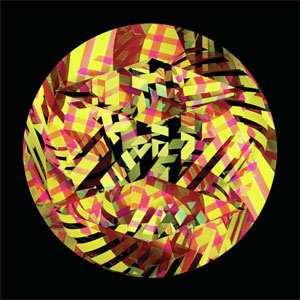Leon Vynehall Rosalind EP
Following his breakout 2012, Brighton’s Leon Vynehall is making a triumphant return to the imprint […]

Following his breakout 2012, Brighton’s Leon Vynehall is making a triumphant return to the imprint which first debuted his work. With three tracks marked by the loose percussion and fuzzy edges that colored his two previous efforts, the Rosalind EP captures a producer who’s still very much honing his craft while nonetheless continuing to deliver unmistakably solid tunes.
In our Bubblin’ Up profile of him last year, Vynehall told us, “I prefer dance music that isn’t really quantized, regimented, and super mixed down to the nano-perfect spot.” This approach is very much intact on Rosalind. In fact, in comparison to his past EPs for Well Rounded and George FitzGerald’s ManMakeMusic label, this record includes an even wider array of misshapen and lopsided elements. Thankfully, they all manage to fit together as cohesively as before. The opening and haphazardly named “Untitled 017” displays this best and in doing so, makes for the EP’s strongest effort. Beginning with a pattern of Gerry Read-esque hats and stuttering percussion, Vynehall strings together a melody using pitched vocal samples, each of which not only seems to have originated from a different piece of music, but also sounds like it’s been run through its own individual filter path. In truth, the song is sort of like a dustier, and maybe a bit stonier, take on the multi-sampled constructions of Akufen. Almost without warning, a restlessly funky bassline fills in the bottom end, joined by pads of organ that coyly build and unravel just beneath the surface. What makes “Untitled 017” such a strong track is that Vynehall is able to use these disparate elements to build a genuine song, one which is at times catchy—the vocal samples’ combined melody and the song’s occasional synth flourishes are pleasantly hard to get out of one’s head—without being forced.
Donning a similarly unremarkable title, the EP’s second track, “Title #7,” utilizes a slightly dustier sonic palette while offering a more straightforward dancefloor affair. Here, the jumpy vocals of “Untitled 017” are replaced with a simpler re-pitched vocal, while the bassline tosses and turns beneath dark, piano-like chords and droning strings. Again, the comparison to Gerry Read is almost unavoidable, but where Read seems to use his textures as a means to indulge in the weird and unexpected—which, at this point, is certainly not something we object to—Vynehall sounds as if he is trying to build productions with more substantial arrangements using comparable, although by no means unoriginal, tools.
The title track serves as more of an outro than a full song, closing the EP on a stoney, downtempo note and leaving “Untitled 017” and “Title #7” as the sole floor-worthy productions Rosalind has to offer. Fortunately, those cuts are strong enough to hold up the effort, which ultimately adds to Vynehall’s increasingly dependable discography.

